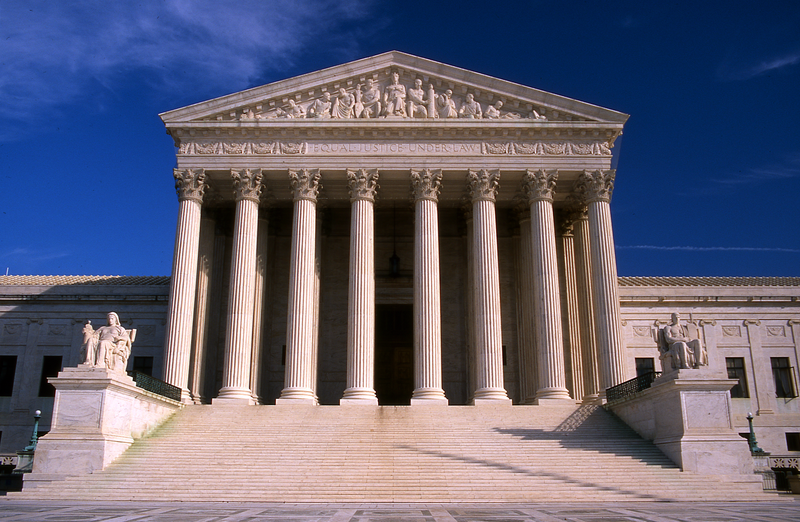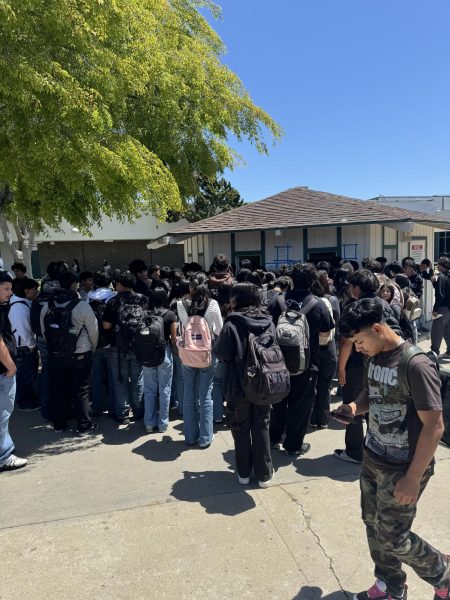Affirmative action: The case against and for it
It’s April now and with that comes the end of the dreaded college decisions season for seniors. Many students had the joys of opening up letters to dream colleges and enjoying celebrations from friends and families alike, while many faced rejections from colleges for seemingly unknown reasons. However, with the entire process being concluded comes the question of whether or not college admissions are inherently fair and with that comes the debate of one of the most controversial policies present in many college admissions processes: affirmative action.
For historical background, affirmative action mainly came about after the introduction of the Civil Rights Act of 1964 under President Lyndon B. Johnson, where the United States government promoted the fair treatment and advancement of career opportunities for women and ethnic minorities. Among these career opportunities included accessibility to college and by the 1970s, many colleges began using race as one factor of many for admissions. Although quotas – the reservation of spots for minorities – were declared illegal in the Supreme Court case of University of California v. Bakke (1978), the court has continuously upheld that affirmative action is permissible through cases like Grutter v. Bollinger (2003) and Fisher v. Texas (2013). The reasoning for this is that race has never been the single determining factor in a person’s admission and its consideration allows for other students to gain a superior education by introducing them to new perspectives that otherwise would not have been possible without affirmative action.
However, the Students for Fair Admissions (SFFA) has for many years gone against this policy, citing that the practice of affirmative action is unconstitutional and going as far to sue various universities including the likes of Harvard and the University of North Carolina that practice these processes. The Supreme Court heard their oral arguments back in October in the cases of SFFA v. Harvard and SFFA v. UNC, and it is expected by many that a ruling will be made by June of this year. Should they declare these processes unconstitutional – which is very likely with the current Supreme Court – it could very well mean the end of affirmative action processes all across universities that receive any sort of undergraduate or graduate funding from the federal government.
Now, where I specifically find issue is the focus on race by the SFFA led by Edward Blum. He claims that the removal of race-conscious admissions will serve to level the playing field, while making almost no remarks towards legacy consideration, the consideration of whether one’s parents attended a specific school and another inherently unfair process that primarily helps white applicants with huge generational wealth. While they have briefly mentioned some aspects of legacy processes, the fact that their mission still remains to be solely focused on taking down a process designed to help underrepresented groups just simply doesn’t sit right with me. That said, I am here to make the claim that it is simply too soon for affirmative action to be overruled.
For many top schools where affirmative action is banned, underrepresented minorities have experienced a severe struggle to gain admission and attend college. The University of California system banned affirmative action in 1996 and switched to a race-blind policy in admissions, however, California’s flagship-state universities have not kept up in matching their demographics to the state population’s demographics. While California’s Hispanic, African-American, and Native-American population make up a combined total of 48.4% of the state population according to the U.S. Census, that same demographic only made up 23.8% of the University of California Berkeley’s 2022 Fall freshmen, the University of California Los Angeles doing only slightly better, with these groups representing 31% of UCLA’s population.
Take Texas too, where affirmative action is also not practiced. Despite the aforementioned groups making up 54.5% of Texas’s population, they make up only 29.5% of UT Austin’s student population, Texas’s flagship-state university for the public. Affirmative action helps to minimize that imbalance that can be exaggerated at selective schools, where those who do have abundant resources have a leg up over those who do not. Without it, schools like Alisal located in low-income neighborhoods with large-minority enrollment could face a serious drop in admissions to selective colleges which would be good for no one.
Now, some have suggested a system where only income is considered and this is where I will make a concession that yes, income should play a significantly larger factor than race, especially when one’s wealth reaches the hundreds of thousands. However, income alone does not account for the systemic and generational issues that continue to haunt minorities, some of whom are still alive today to tell the horrors of Jim Crow and many more of whom are alive to tell the horrors that policies such as the War on Drugs have caused to minorities. How can someone reasonably suggest that 50 years of affirmative action is way too long and unnecessary when minorities have faced 300 YEARS and generations of pure degradation and dehumanization. President Lyndon B. Johnson put it best in his commencement address at Howard University regarding affirmative action.
“Freedom is not enough. You do not wipe away the scars of centuries by saying: Now you are free to go where you want, and do as you desire, and choose the leaders you please. You do not take a person who, for years, has been hobbled by chains and liberate him, bring him up to the starting line of a race and then say, “you are free to compete with all the others,” and still justly believe that you have been completely fair.”
Those chains are still shackling people of color to this day. While I do agree that 20 to 25 years from now, affirmative action should be phased out, the destruction that the previous centuries’ politicians have caused on minority groups combined with the continuous injustices committed against minorities prevents me from saying that time is now, and if we continue to face political gridlock that impedes any advancement for people of color, then that time may never come.
Of course, some people criticize the fact that Asian Americans are not included under affirmative action policies and I agree! It is unfair when they have also gone through much discrimination in this country and I wouldn’t be opposed to including them under such policies or at least not penalizing them in admissions. However, what I am opposed to is any label of such policies being a “crutch” for minorities.
Which brings me on to what I want to emphasize; affirmative action is not the sole reason that someone has gotten into a university. It serves to level out the playing field that for minorities has been unfairly set against them.
We’re not admitting failing students to Harvard, we’re not giving auto admission to anyone who checks off the “Black” or “Latino” box in the racial/ethnic category, we’re giving them a chance in a battle that has already been stacked against them. I’ve had various fellow admitted classmates at Stanford receive so many hateful messages from privatized social media accounts swearing that they only got into Stanford because, and I quote, “You’re Black/Mexican and would have never had a chance otherwise.” How dare you make such a claim, even when they’ve won state level awards? Even when they’ve won national level awards? Even when they’ve won INTERNATIONAL level awards? The privilege and racism that many of these people reek when standing against affirmative action becomes quite evident when you boil down their argument to their primary reasons.
It’s why I will never give in to people like them and will die on the hill arguing that the time to remove affirmative action is not now. Instead, we should all strive to guide people to take action against the injustice towards people of color which can then in turn lead to the phasing out of affirmative action. When the time comes when news outlets stop posting about the new racial incident of the week, *that* will be the time in which we can declare that affirmative action in college admissions should be no more.
Your donation will support the student journalists of Alisal High School. Your contribution will allow us to purchase equipment and cover our annual website hosting costs.

































